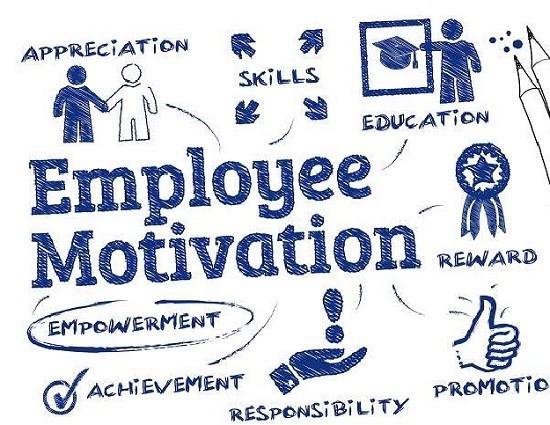
10 Essential Considerations for Hiring Managers
Hiring Managers guide to making their next decision
Decisions are crucial for hiring managers as they directly influence the quality of talent brought into an organization. Hiring the right individuals can significantly impact the company’s performance, culture, and long-term success.
Here’s a summary of why decisions are essential for hiring managers:
- Talent Acquisition: Hiring managers are responsible for identifying and selecting candidates who possess the necessary skills, experience, and cultural fit for the organization. The decision to hire one candidate over another can determine whether the company gains a valuable asset or misses out on top talent.
- Organizational Performance: The performance of an organization is heavily reliant on its employees. Effective hiring decisions can lead to a high-performing workforce that contributes to achieving business objectives and maintaining a competitive edge.
- Employee Retention: Making well-informed hiring choices increases the likelihood of employee satisfaction and retention. Employees who feel their skills and values align with the company are more likely to stay long-term, reducing turnover costs and promoting stability.
- Team Dynamics: Hiring managers must consider how new hires will interact with existing teams. The decision to bring in a candidate with complementary skills and a positive attitude can enhance team dynamics, fostering collaboration and productivity.
- Innovation and Creativity: Hiring managers play a critical role in building a diverse workforce. Embracing diversity in hiring decisions brings fresh perspectives and ideas, fostering innovation and creativity within the organization.
- Company Culture: Candidates who align with the company’s values and culture are more likely to integrate seamlessly into the organization. Hiring managers must assess cultural fit during the decision-making process to ensure a harmonious work environment.
- Cost-Effectiveness: Hiring the right candidate from the start saves time and resources in the long run. Avoiding mis-hires reduces the need for recruitment and training processes, saving both time and money. Research compensation data on websites such as Salary.com
- Leadership Development: Hiring managers often have the opportunity to bring in potential leaders. Identifying candidates with leadership potential and nurturing their growth can have a lasting positive impact on the organization’s future.
- Reputation and Branding: A company’s reputation is influenced by the quality of its employees. Making wise hiring decisions contributes to a positive employer brand, attracting top talent and enhancing the organization’s overall reputation.
- Legal Compliance: Hiring managers must adhere to legal and ethical standards during the hiring process. Ensuring fair and unbiased decisions prevents legal repercussions and promotes an inclusive and equitable work environment.
Hiring managers play a vital role in shaping the organization’s success through their decisions. By considering the implications of their choices on talent acquisition, organizational performance, employee retention, team dynamics, and company culture, hiring managers can build a strong and thriving workforce that drives the company forward.

As a hiring manager, making decisions is an integral part of your role. Whether it’s a strategic move or a day-to-day operational choice, the decisions you make can significantly impact your team, department, and organization as a whole. To ensure that your decisions lead to positive outcomes, it’s crucial to consider various factors before taking action.
Here are ten essential things that managers must know before making their next decision.
- Understand the Objective
Before making any decision as a hiring manager, it’s vital to have a clear understanding of the objective you want to achieve. Define the problem or opportunity you’re addressing, and ensure that the decision aligns with the overall goals and mission of the organization. This clarity will guide you in choosing the most appropriate course of action and prevent distractions from unrelated matters.
- Gather Relevant Data
Data-driven decision-making is critical for effective management. Rely on accurate and relevant data to analyze the situation and potential solutions. Consider both quantitative and qualitative data, as this will provide a comprehensive view and help you make informed choices.
- Involve Key Stakeholders
Inclusive decision-making leads to better outcomes and stronger support from stakeholders. Engage relevant individuals or teams who have a vested interest in the decision’s consequences. Seek their input, listen to their perspectives, and address any concerns they might have. This collaborative approach can enhance buy-in and lead to more successful implementation.
- Assess Risks and Benefits
Every hiring manager decision comes with inherent risks and rewards. Conduct a thorough risk analysis to identify potential pitfalls and their potential impact on the organization. Simultaneously, evaluate the potential benefits and advantages of each option. Balancing risk and reward is crucial for effective decision-making.
- Consider Long-term Implications
Some hiring manager decisions may provide short-term gains but have negative long-term consequences. Always consider the sustainability and lasting impact of your choices. Assess how your decision will affect the organization’s future and its ability to adapt to changing circumstances.
- Review Past Decisions
Learning from past decisions can be immensely valuable. Reflect on previous choices and their outcomes. Analyze what worked well and what didn’t, and use those insights to inform your current decision-making process. Continuously improving your approach can lead to more successful outcomes in the future.
- Think Ethically and Morally
Managers must consider the ethical and moral implications of their decisions. Ensure that your choices uphold the organization’s values and principles. Strive for fairness, honesty, and integrity in all your actions, as ethical lapses can lead to severe consequences for both the organization and your team’s morale.
- Be Mindful of Timing
The timing of a decision can significantly influence its effectiveness. Evaluate whether the decision needs to be made immediately or if waiting for more information would lead to better results. Avoid making rushed decisions that might lead to avoidable mistakes.
- Anticipate Resistance
Change, even if it stems from a well-thought-out decision, can face resistance. Anticipate potential pushback from team members or stakeholders and be prepared to address their concerns. Effective communication and transparency can help mitigate resistance and foster a more supportive environment.
- Consider Alternative Solutions
It’s essential to explore multiple alternatives before making a final decision. Avoid fixating on the first seemingly viable solution that comes to mind. Engage in brainstorming sessions and encourage creative thinking to identify various options. Evaluating alternatives will help you select the best possible path forward.
As a hiring manager, your decisions have a significant impact on your team and organization. By considering these ten essential factors before making your next decision, you can enhance the quality of your choices and increase the likelihood of positive outcomes. Remember to align your decisions with the organization’s objectives, gather relevant data, involve stakeholders, and think ethically. Learning from the past and considering long-term implications will also contribute to your growth as a successful decision-maker. By approaching decisions thoughtfully and strategically, you can steer your team and organization towards greater success.
Please Contact SourceCandidates for more info on Tips for Hiring Managers





